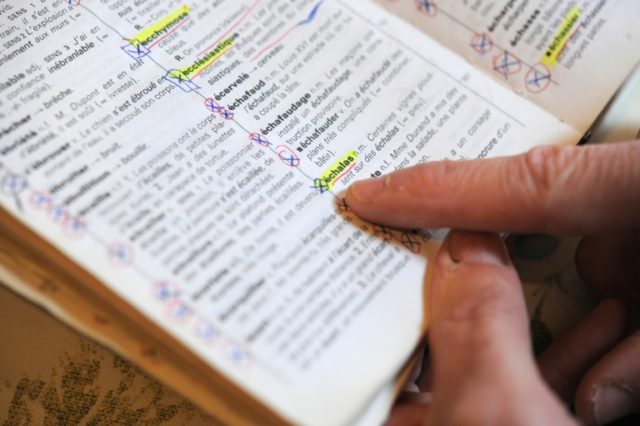Miami (AFP) – Nearly two thirds of the world’s languages often use similar sounds for common objects, such as the “n” sound for nose, international researchers said Monday.
The study challenges a long-standing principle of linguistics, which holds that the relationship between sound and meaning is completely arbitrary, said the report in the Proceedings of the National Academy of Sciences.
“These sound symbolic patterns show up again and again across the world, independent of the geographical dispersal of humans and independent of language lineage,” said Morten Christiansen, professor of psychology at Cornell University.
“There does seem to be something about the human condition that leads to these patterns. We don’t know what it is, but we know it’s there,” added Christiansen, director of Cornell’s Cognitive Neuroscience Lab.
For the study, scientists analyzed dozens of basic vocabulary words in 62 percent of the world’s more than 6,000 current languages.
Pronouns, body parts, animals, adjectives and verbs to describe motion were all included.
Not all, but “a considerable proportion of the 100 basic vocabulary words have a strong association with specific kinds of human speech sounds,” said the study.
For instance, in most languages, the word for “nose” was likely to include the sounds “neh” or the “oo” sound, as in “ooze,” it said.
The word for tongue was “likely to have ‘l’ — as in ‘langue’ in French.
The word for “sand” was likely to include the “s” sound.
“R” sounds were likely to included in the words for “red” and “round.”
“It doesn’t mean all words have these sounds, but the relationship is much stronger than we’d expect by chance,” Christiansen said.
Some of the strongest associations were among words for body parts.
More research is needed to understand why certain sounds are linked to certain words.
Co-authors on the study came from the University of Zurich, University of Leiden, Max Planck Institute for the Science of Human History, and University of Leipzig.

COMMENTS
Please let us know if you're having issues with commenting.